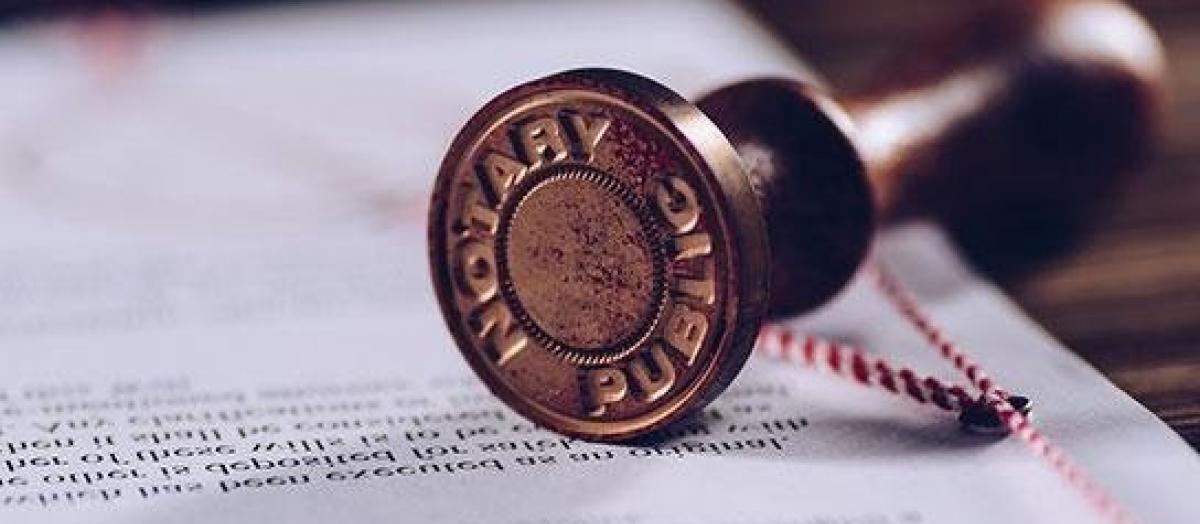Navigating DIRCO Demands: Conformity and Diplomatic Relations
Navigating DIRCO Demands: Conformity and Diplomatic Relations
Blog Article
Debunking Notarial Job: Streamlining the Duty and Significance of Notaries
In the elaborate web of lawful documentation and confirmation, notaries stand as pillars of assurance and credibility. Their role, commonly shrouded in enigma for lots of, brings considerable weight in making sure the legitimacy and stability of vital records. As guardians of legitimacy and reality, notaries play an essential component in our society, yet their job is not constantly fully recognized. By unraveling the intricacies bordering notarial practices and dropping light on the relevance of their acts, a more clear understanding emerges of the important function notaries play in promoting the textile of legal and legal arrangements.
The Background of Notarial Work
The history of notarial job days back to old human beings, where scribes played an essential duty in videotaping crucial information and confirming files. This led to the growth of notaries, people designated by the state to act as objective witnesses in legal issues.
During the Middle Ages, notaries acquired prestige in Europe, with their features broadening to consist of drafting lawful papers, certifying trademarks, and protecting documents. The surge of worldwide trade additionally emphasized the importance of notarial job in confirming contracts and agreements across borders.
In the contemporary period, notaries remain to play a vital duty in legal and service transactions by validating identities, confirming the authenticity of documents, and protecting against fraud. Their role in certifying the legitimacy of contracts adds a layer of safety and trust to the ever-evolving landscape of commerce and regulation.

Responsibilities and Responsibilities of Notaries
Notaries play a crucial function in validating the credibility of files and the identification of signatures. One of their primary obligations is to witness the finalizing of crucial documents, such as wills, acts, and agreements, to make sure that all parties are entering right into arrangements knowingly and voluntarily.
Furthermore, notaries are tasked with administering vows and affirmations, which are essential in lawful process and the execution of testimonies. They license copies of original files, providing assurance to organizations that the duplicates are true reproductions of the originals. Notaries have to maintain precise records of all purchases they manage to guarantee openness and liability. Overall, the duties and obligations of notaries are important in protecting the honesty and legitimacy of different documents and purchases.
Notarial Certificates and Signatures
Exhibiting thorough attention to detail, notarial certifications and trademarks act as important parts in verifying the credibility of legal papers. Notarial certifications usually include vital information such as the date of notarization, the names of the signatories, a description of the document, and the notary's official seal. These certifications give a clear document of the notarial act, ensuring that the record can be quickly identified and traced back to the notary who oversaw the procedure.
Signatures play an essential function in notarial work, as they represent the contract and permission of the parties involved. Notaries meticulously witness the finalizing of records to validate the identity of the notaries and confirm that they are signing of their own totally free will. By fastening their official seal and trademark to the file, notaries license that the essential treatments have actually been complied with which the paper is legitimate and enforceable.
In essence, notarial certificates and signatures are the hallmark of authenticity in legal transactions, providing assurance to all celebrations entailed that the documents are legit and binding.
Relevance of Notarial Acts

Registration Process Explained
Discussing the registration process offers quality on the important actions entailed in verifying lawful papers. The notarization process normally begins with the individual providing the paper to a notary public. The notary then verifies the signer's identity with acceptable identification techniques. As soon as the identification is validated, the notary ensures that the private signing the record does so willingly and without any kind of threat.

Conclusion

Notarial certifications usually include essential details such as the date of notarization, the names of the notaries, a description of the record, and the notary's main seal. These certifications provide a clear record of the notarial act, ensuring that the document can be conveniently recognized and mapped back to the notary who looked after the procedure.
By attaching their main seal and signature to the file, notaries license that the needed procedures have actually been followed and that the file is enforceable and valid.
By confirming the identification of the signatures, validating their determination to enter into the contract, and licensing the date and place of the signing, notaries play an essential function in promoting the validity of legal documents.After the file is authorized, the notary will certainly attach their main seal or stamp onto the document.
Report this page